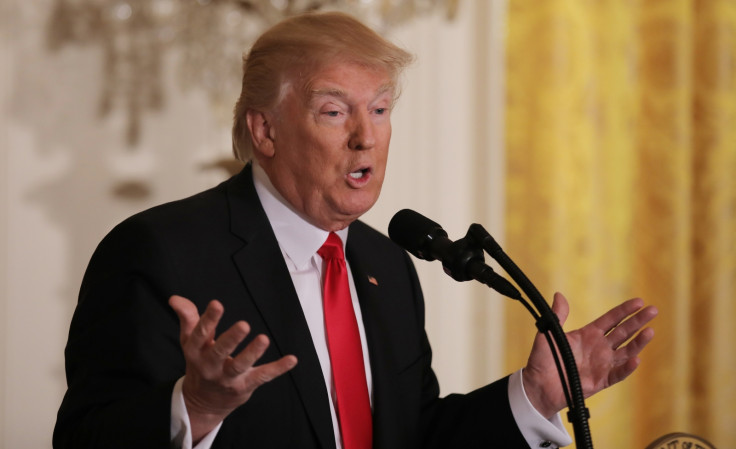Trump's policies will damage health and science says The BMJ
President places "place little value on facts or analysis", doctors say

A prestigious medical journal has said that US President Donald Trump will set back health care and science in an editorial authored by its senior editors.
"We are particularly concerned that Trump's administration is acting in ways that will suppress research and limit communication on scientific topics that it deems politically inconvenient," wrote an editorial group at The BMJ, once known as The British Medical Journal.
"Many of the new administration's pronouncements seem to place little value on facts or analysis," they said, adding "Donald Trump's presidency has raised worrying questions about its likely impact on science and health policy."
The editors, one of whom is a professor of health policy at the Harvard TH Chan School of Public Health, point to the Trump administration's policies which aim to scale back the Food and Drug Administration's ability to ensure the safety of drugs, and scientists' capacity to attend conferences and communications.
"Scientific information on government websites is being removed and becoming inaccessible," wrote Jose Merino, Elizabeth Loder, Kamran Abbasi, and Ashish Jha.
Scientists from the Department of Agriculture, the Department of the Interior, and the Department of Health and Human Services are being restricted in what they can say publicly, the editors said. And scientific agencies are even cancelling meetings with their international colleagues because they are afraid they will be punished by Trump's administration.
Many of the president's political appointees and cabinet nominees have denied climate change and vowed to work to increase the use of climate change promoting fossil fuels, which are detrimental to human health.
The group also warned that the repeal of the Affordable Care Act, known as Obamacare, without an alternative law will damage people's health as it could potentially leave millions of people without health insurance.
"The Trump administration's early policies risk head-on collision with the scientific and health communities," the editors said. The US "is one of the largest funders of global health, and offers unparalleled research capacity, innovative technology and products, and a skilled healthcare workforce," they continued. "That power and influence, if misdirected, will damage efforts to create a healthier, stronger world."
© Copyright IBTimes 2025. All rights reserved.




















